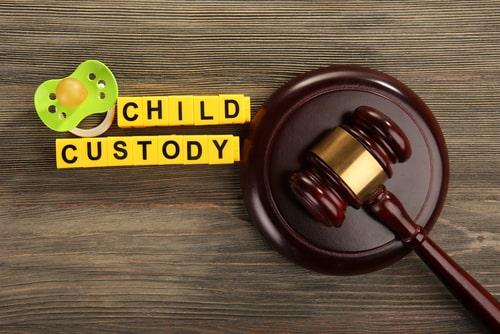Recent Blog Posts
How Do Investments Get Divided During Divorce?
 When couples divorce, assets acquired together, including property, bank accounts, and investments, must be divided equitably based on marriage circumstances. This asset split introduces financial and legal complexity for those with investment portfolios comprising 401ks, stocks, and mutual funds. Navigating how to untangle years of mixed contributions and market gains to arrive at a fair split requires understanding statutes, demarcating separate versus marital property, and awareness of tax implications that could lessen total value without strategic guidance. A Texas lawyer can help so you can understand the process easier.
When couples divorce, assets acquired together, including property, bank accounts, and investments, must be divided equitably based on marriage circumstances. This asset split introduces financial and legal complexity for those with investment portfolios comprising 401ks, stocks, and mutual funds. Navigating how to untangle years of mixed contributions and market gains to arrive at a fair split requires understanding statutes, demarcating separate versus marital property, and awareness of tax implications that could lessen total value without strategic guidance. A Texas lawyer can help so you can understand the process easier.
Identifying All Investment Assets
The first step in dividing investments in divorce is full financial disclosure by both spouses. This requires documenting all taxable and retirement investment accounts each individual owns. Tracking down statements for 401ks, IRAs, brokerages, mutual funds, and stock options ensures everything gets put on the table before deciding on allocation. Omitting an asset accidentally or intentionally fails to split it.
Do You Always Have to Pay Alimony in Texas?
 Spousal maintenance, commonly called alimony, is not an automatic requirement in divorce cases. Whether one spouse must pay ongoing financial support to the other depends on certain circumstances. You should be aware of alimony laws and when alimony may or may not be awarded. A Texas lawyer can help you so you know exactly what to expect.
Spousal maintenance, commonly called alimony, is not an automatic requirement in divorce cases. Whether one spouse must pay ongoing financial support to the other depends on certain circumstances. You should be aware of alimony laws and when alimony may or may not be awarded. A Texas lawyer can help you so you know exactly what to expect.
Texas Alimony Basics
Texas views marriage as each spouse being self-sufficient unless proven otherwise. Alimony is only intended to provide temporary assistance until an economically disadvantaged spouse can become independent after divorce. Payments are not guaranteed.
The court can order alimony if one spouse clearly shows they cannot independently provide for their minimum reasonable needs, based on factors like:
- Insufficient earning ability due to age, lack of education and training, health issues, or other barriers
Navigating Co-Parenting After a Divorce in Texas
 Ending a marriage with children involved presents the additional challenge of adjusting to a co-parenting relationship with your former spouse. While cooperation is ideal, various issues can strain positive co-parenting after a divorce. Understanding the common obstacles and constructive strategies will help you effectively work together for your kids. A Texas lawyer can also help you establish the best possible co-parenting custody plan.
Ending a marriage with children involved presents the additional challenge of adjusting to a co-parenting relationship with your former spouse. While cooperation is ideal, various issues can strain positive co-parenting after a divorce. Understanding the common obstacles and constructive strategies will help you effectively work together for your kids. A Texas lawyer can also help you establish the best possible co-parenting custody plan.
Disagreements Over Custody Schedules and Changes
Frequent conflicts often arise when trying to balance both parents’ wishes to spend time with the children. Scheduling disputes, last-minute changes, missed visits, and confusion over holidays all add tension. Communicating respectfully is key. When needed, mediators can facilitate fair compromises.
Navigating High-Conflict Custody Battles in Texas Divorces
 When substantial assets and emotions run high, custody disputes during a divorce often turn complex. Preparation and legal strategies with a Texas lawyer can help you resolve parenting plan impasses. Your focus must remain on the children’s well-being, not “winning” at all costs.
When substantial assets and emotions run high, custody disputes during a divorce often turn complex. Preparation and legal strategies with a Texas lawyer can help you resolve parenting plan impasses. Your focus must remain on the children’s well-being, not “winning” at all costs.
Understanding How Courts Determine Custody
Texas family courts prioritize the child’s best interests when awarding custody. Judges weigh factors like:
- Each parent’s ability to provide a stable, nurturing home environment
- Strength of the children’s existing relationships with each parent, siblings, and other relatives
- Willingness to encourage ongoing relationships with the other parent
- Parent’s mental health, education, support networks, and any substance abuse or legal issues
How to Keep Divorce Civil in Texas
 Going through a divorce can be emotionally devastating. Maintaining civility with your former spouse during the process does not have to be an impossible task. Working with a Texas lawyer can help you on your divorce path.
Going through a divorce can be emotionally devastating. Maintaining civility with your former spouse during the process does not have to be an impossible task. Working with a Texas lawyer can help you on your divorce path.
Communicate Respectfully
The way you and your ex-spouse communicate sets the tone for your entire divorce. Speak calmly when discussing issues related to your separation. Avoid letting the discussion escalate into a heated argument. Criticizing or blaming your former partner will only generate resentment. Keep talks focused on practical matters like finances and childcare arrangements.
Listen thoughtfully when your ex-spouse expresses concerns and try to understand their perspective. Compromise when you can reasonably do so. Polite, thoughtful communication prevents emotions from running high, keeping your interactions civil.
What Can I Do If My Ex Is Not Paying Court-Ordered Child Support?
 If your divorced spouse is violating a court order and failing to pay owed child support in Texas, you have legal options to pursue enforcement or recover the payments with a lawyer. Here are actions you can take when facing unpaid support.
If your divorced spouse is violating a court order and failing to pay owed child support in Texas, you have legal options to pursue enforcement or recover the payments with a lawyer. Here are actions you can take when facing unpaid support.
File an Enforcement Motion
The first step is filing a motion with the court that issued the child support order, requesting formal enforcement proceedings due to nonpayment. Be sure to thoroughly document all missed child support payments in the motion. The court can then hold your ex-spouse in contempt of court for violating its lawful child support order. Potential consequences include wage garnishment, property liens, and even jail time in serious willful violation cases.
Minimizing the Impact of Divorce on Children in Texas Custody Cases
 When parents divorce in Texas, determining custody arrangements for minor children adds further complexity and potential trauma to the process. The breakup of a family through divorce profoundly impacts children’s well-being and stability. There are steps divorcing parents can take to help protect their children’s best interests and minimize the disruption of divorce, including working with a lawyer.
When parents divorce in Texas, determining custody arrangements for minor children adds further complexity and potential trauma to the process. The breakup of a family through divorce profoundly impacts children’s well-being and stability. There are steps divorcing parents can take to help protect their children’s best interests and minimize the disruption of divorce, including working with a lawyer.
Focus on the Child’s Needs and Perspective
Children cope better when parents remain centered on the child’s needs. Approach custody discussions remembering that your child did not choose divorce and they should not be put in the middle of parental conflict. Seek arrangements that maintain close relationships with both parents.
Prioritize Consistency and Stability
Major upheavals like changing schools, friends or residences can worsen divorce’s effects on children. Try to preserve normal routines and a sense of security. Custody schedules with predictable transitions and consistent rules/discipline are ideal.
Can I Make Modifications to My Child Custody Agreement in Texas?
 Divorces with children in the mix can be tricky. Child custody can help you protect and prioritize the welfare of your child. It also aids in dividing quality time between both parents. But once child custody is finalized, some conditions might change that decision over time. If your current child custody order does not work for your family, there are a few measures that you can take in the state of Texas to help. To streamline the process even more, you can seek the guidance of a family law attorney.
Divorces with children in the mix can be tricky. Child custody can help you protect and prioritize the welfare of your child. It also aids in dividing quality time between both parents. But once child custody is finalized, some conditions might change that decision over time. If your current child custody order does not work for your family, there are a few measures that you can take in the state of Texas to help. To streamline the process even more, you can seek the guidance of a family law attorney.
What Are the Reasons for Modification of Child Custody?
Texas family law knows and understands that life comes with change. In light of this, a child custody order can be modified. But to do so, there must be proof of significant conditions that will directly affect the child if the agreement is not adjusted. Here are a few reasons modification of child custody may be granted:
Can You Adopt a Minor Relative in Texas?
 For many of us, our family means everything. Our loved ones are the center of our universe. Sometimes certain circumstances can occur that threaten that close bond between family members. A possible solution is relative adoption. Fortunately, it is possible to adopt a minor relative in the state of Texas. This type of adoption ensures that the child remains in a stable and caring environment while still connected to their birth family.
For many of us, our family means everything. Our loved ones are the center of our universe. Sometimes certain circumstances can occur that threaten that close bond between family members. A possible solution is relative adoption. Fortunately, it is possible to adopt a minor relative in the state of Texas. This type of adoption ensures that the child remains in a stable and caring environment while still connected to their birth family.
Am I Eligible to Adopt?
In Texas, you must meet specific adoption requirements to be eligible. Here are a few primary conditions you need to meet for a kinship or relative adoption:
-
Must be 21 years old
-
Complete an adoption application
-
Provide references (relatives and non-relatives)
Understanding Alimony in Texas Divorce: How to Determine Your Eligibility
 Alimony, also known as spousal support, can significantly affect divorce proceedings. In Texas, determining whether alimony will be awarded depends on various factors. Today, we will explore the key factors that influence the inclusion of alimony in a Texas divorce settlement and how you can properly assess your eligibility. Discuss with your divorce attorney as to whether spousal support will be a factor in your case.
Alimony, also known as spousal support, can significantly affect divorce proceedings. In Texas, determining whether alimony will be awarded depends on various factors. Today, we will explore the key factors that influence the inclusion of alimony in a Texas divorce settlement and how you can properly assess your eligibility. Discuss with your divorce attorney as to whether spousal support will be a factor in your case.
Determining Alimony Eligibility in Texas
-
Need and ability to pay: To be eligible for alimony, you must demonstrate a genuine financial need for support and an ex-spouse’s ability to pay. The court takes into account factors like earning capacities, income disparities, age, health, and education levels when assessing the financial needs of the requesting spouse. Additionally, the court considers the paying spouse’s ability to pay without experiencing undue financial hardship.

 6160 Warren Pkwy, Suite 100, Frisco, TX 75034
6160 Warren Pkwy, Suite 100, Frisco, TX 75034
 214-764-8033
214-764-8033
